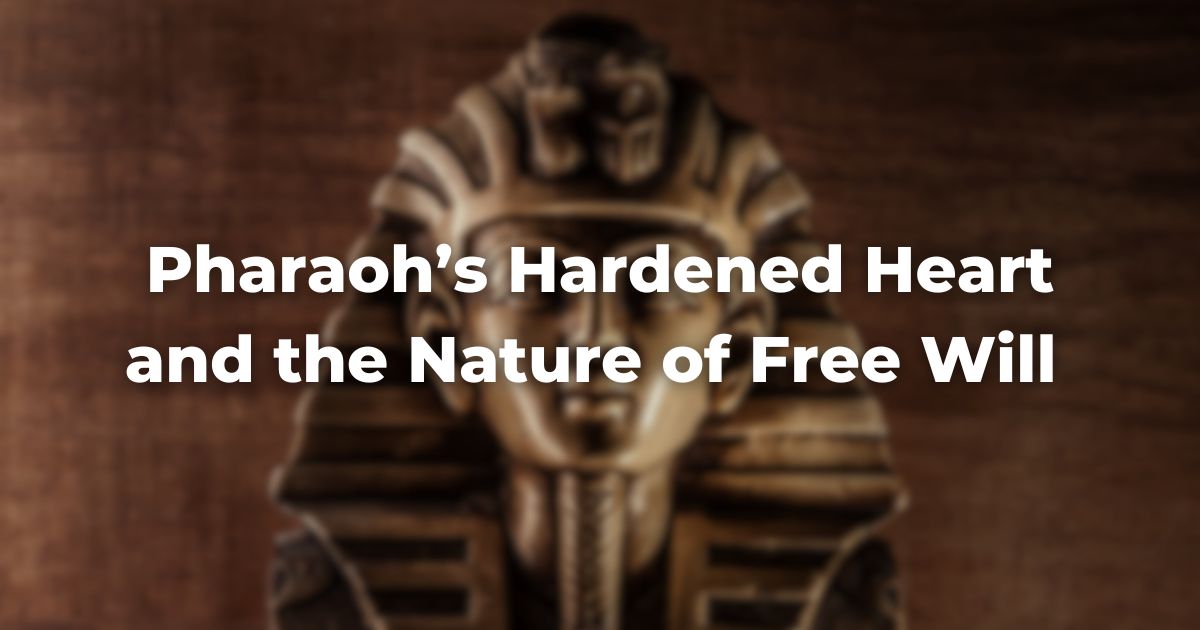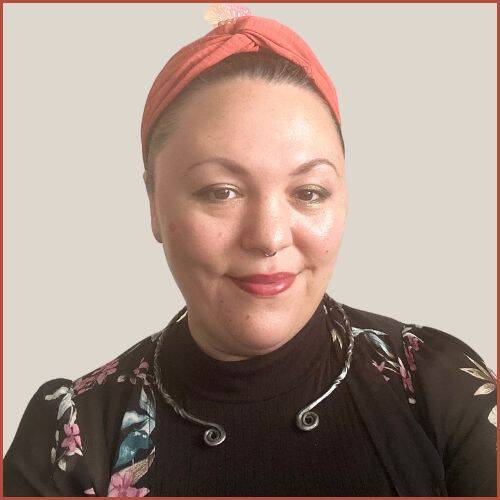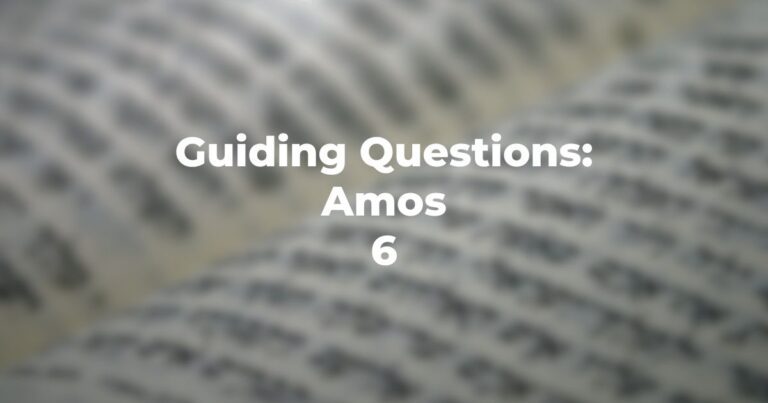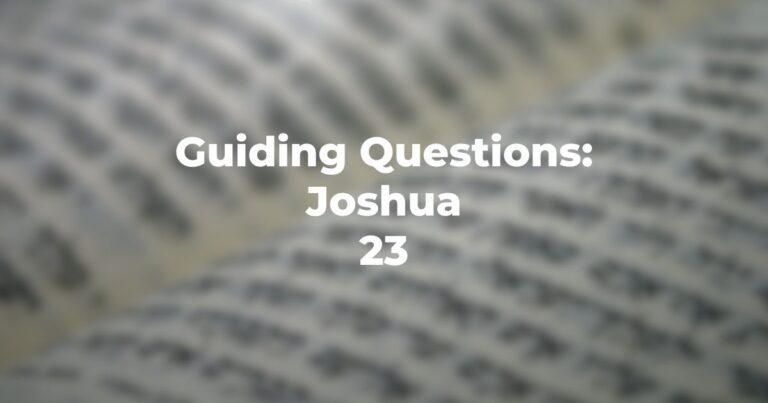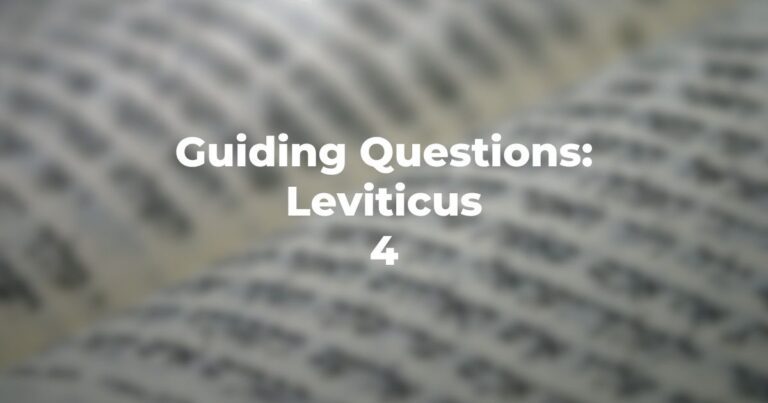If you’ve been to a Passover Seder, watched Disney’s The Prince of Egypt, or you’ve read the actual text, you likely know the basic outline of the Exodus story.
God appears to Moses in the burning bush, tells him he has to go down to Egypt to help redeem the Israelites from slavery and Moses reluctantly.
Then God throws a wrench into the process by declaring, “I will harden Pharaoh’s heart, and he will not let the Israelites go.” (Exodus 4:21).
It’s a bit of a record-scratch moment. Why would God give Moses such an enormous task and then make it harder?
Let’s start unpacking the answer by asking a few guiding questions.
- What does it mean for God to harden Pharaoh’s heart?
- Does that mean that Pharaoh has no choice in the matter?
- And, if so, how do we reconcile that with a notion of free will?
Perhaps even more perplexing is that the text says, no less than eight times, that God will harden pharaoh’s heart.
Rashi, a medieval French commentator, attempts to answer the question by reasoning that Pharaoh was simply arrogant. He wouldn’t understand or appreciate God’s power as ultimate Ruler of the universe unless God used a strong hand to teach him a lesson.
Rashi isn’t wrong.
Pharaohs in ancient Egypt believed they were living embodiments of the gods, so it was highly unlikely this pharaoh would be moved by just the request, or even demand, of an obscure deity of his Hebrew slaves.
Let’s look deeper.
For a more philosophical, even theological take, we can turn to our good friend, Abraham Ibn Ezra. Ibn Ezra was a medieval Spanish commentator known for his grammatical treatises and his inclination for philosophy.
In this writing, Ibn Ezra comments on the word ויחזק (and God hardened) in Exodus 10:20. He writes: “this is to be understood á la the words of our sages of blessed memory, who said, ‘the door is opened for the one who comes to defile himself.’”
Ibn Ezra is referring to a debate in the Babylonian TalmudReferring to one of two collections, the Jerusalem and Babylonian Talmuds, edited in the 6th century, that contains hundreds of years of commentary, discussion, and exploration of the ideas in the Mishnah. One could describe it as Mishnah + Gemara = Talmud Read more in Tractate Shabbat 104a. Tractate Shabbat features the sages discussing and debating everything you’re allowed—and not allowed—to do on Shabbat. Writing is one act that is strictly forbidden.
At this point you might be wondering what’s the connection between “one who comes to defile himself,” and writing on Shabbat. An excellent question!
The Sages of rabbinic literature use what’s called associative logic. This means that discussion topics aren’t always presented to us in nice, linear progressions like we might expect.
To find this connection we need to do a little more digging. But your patience will be rewarded.
In the midst of a long debate about what constitutes writing on Shabbat, we’re given a delightful story about a group of children that come to a study hall and give midrashic (creative and associative) interpretations for the Hebrew letters.
They proceed to go through each letter of the Hebrew alphabet, getting increasingly more imaginative.
The part that’s most relevant to our discussion is when they get to the letter kuf. The children in our study hall really seem to like kuf, (shaped like this: ק) because they give it not one, but two interpretations. First, that it stands for kadosh (holy), and that refers to God.
Their second interpretation is based on the letter’s shape. Kuf consists of a curve and a “leg” that floats in space, and the children see this opening like the opening God makes for t’shuvah (repentance).
A wicked person has to be willing to repent, but if/when they are, there’s an opening from God, right there, waiting!
מְסַיַּיע לֵיהּ לְרֵישׁ לָקִישׁ, דְּאָמַר רֵישׁ לָקִישׁ: מַאי דִּכְתִיב ״אִם לַלֵּצִים הוּא יָלִיץ וְלַעֲנָוִים יִתֶּן חֵן״?
בָּא לִיטַמֵּא — פּוֹתְחִין לוֹ,
בָּא לִיטָּהֵר — מְסַיְּיעִים אוֹתוֹ.This supports the statement of Reish Lakish. Reish Lakish said: What is the meaning of that which is written: “If it concerns the scorners, He scorns them, and unto the humble He gives grace?” (Proverbs 3:34)
One who comes in order to become impure, (i.e., to sin, they in Heaven,) provide him (with an opening to do so, and he is not prevented from sinning.)
(However, if he) comes in order to become purified, (not only is he allowed to do so, but they, in Heaven), assist him.
If someone has the intention to sin, then God doesn’t stand in the way. But if someone has the intention to repent, God assists them. There’s a difference.
Alright, what does this mean for Pharaoh?
On the page preceding our story, the Sages inform us that if one writes two letters together—no matter if they’re the same and no matter the language—this is a violation of the writing prohibition on Shabbat.
If a person is unaware of this prohibition, there is no sin. However, if they are, then they defile themselves willfully. And God—according to our Sages—does not want to look at a wicked person. This is a euphemistic way of saying that a person who willfully sins violates their conscience.
And this is how Ibn Ezra interprets the notion that God hardened Pharaoh’s heart:
Pharaoh always had the intention to sin, and he made a choice to ignore God and impose his will on the Israelites. True, it may not have been a conscious choice—after all, this guy did think he was an Egyptian god. But it was still a choice.
So, was it a violation of free will? No.
What do we learn from Pharaoh? Intention and choice are key. We have the choice as to whether or not we ‘defile’ ourselves by sinning and we also have the power to change, if we choose to.
We are never stopped from making mistakes—this is what the text means by “they provide him an opening to do so.” By the same token, when we’re ready to change God is there to assist us.
As one of my students so elegantly put it: “God never said God would change pharaoh’s heart, just harden it.”
So, you see, there was no violation of free will here. Pharaoh made his choice, and God assisted him. Had pharaoh changed his mind and repented, God would have likewise assisted him.
There is a beautiful midrashThis word is used in two ways, as both a concept and a literature. As a concept, midrash is the expansive interpretation of biblical texts. The term is used to describe the practice of rabbinic interpretation. As a text, it refers to specific collections of interpretations, particularly from the third to ninth centuries in the Land of Israel and Babylonia. Plural: Midrashim
Read more (rabbinic teaching) that before God even created the world, God created the concept of t’shuvah (repentance).
This was because God knew that with free will came the potential for humans to introduce chaos into the world. But, by creating the mechanism of t’shuvah, God ensured there would always be a way of restoring balance.
Free will gives us a lot of responsibility. But here we can also take comfort in what the Sages teach: we are never prevented from sinning (because that would cancel our free will), but we are always assisted in doing t’shuvah.
That means that God designed the universe to work in our favor. That means that help is never far away, should we need it.
Author
-

Malka Michél was born and raised in Honolulu, Hawaii. She is the proud daughter of an Ashkenazi father and Sephardic mother with Converso roots. She was a fellow in the first cohort of the Exploring Judaism's Writer's Fellowship. Malka regards her upbringing on the western extreme of the American Jewish Diaspora as having an enormous influence on her outlook as a Jew and the deep spirituality she cultivated as a child. As an intuitive and highly creative and soul, it was natural for Malka to pursue degrees in Western Classical music and performance. Seeking to reclaim a critical part of her Jewish identity, Malka taught herself Hebrew and then completed three years of cantorial school at Hebrew Union College in Jerusalem and New York. During that time, Malka fell in love with Hazzanut but longed to know more about the rich, beautiful and often challenging world of Jewish text. So, in 2020 Malka began her journey at the Ziegler School for Rabbinic Studies in Los Angeles. Malka sees her circuitous journey to the rabbinate as essential in shaping her as a person and a rabbi.
View all posts

